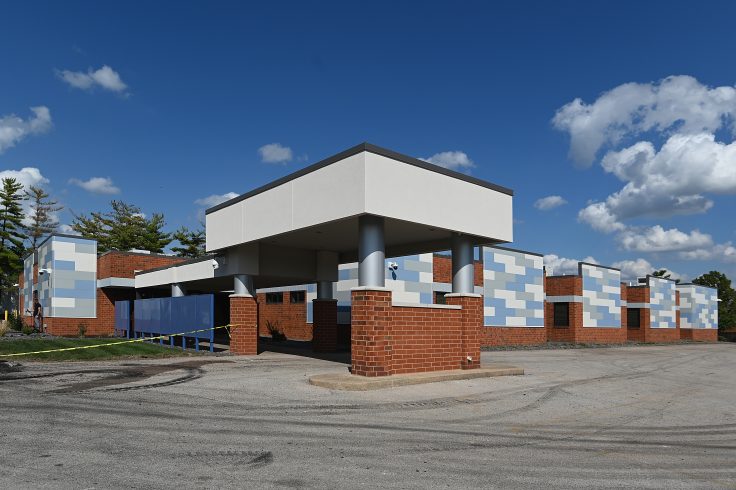Abortion providers in a half dozen states are fighting to stay open as local authorities argue that medial supplies need to be conserved to combat the coronavirus pandemic.
Those providers have filed lawsuits in the wake of orders from six Republican governors asking abortion facilities to suspend service. The governors cited the need to preserve items like gloves, eyewear, shoe covers, and disposable gowns. Disputes over the issue are briskly moving through the federal courts and could reach the Supreme Court in short order.
Authorities in those states—Texas, Ohio, Alabama, Iowa, Mississippi, and Oklahoma—say frontline medical staff are critically short on supplies ahead of an anticipated surge of coronavirus hospitalizations, and that they need to take extreme measures to ensure they have enough equipment on hand. Three federal judges have disagreed, finding states cannot discontinue abortion access, the crisis notwithstanding.
The disputes follow other far-reaching orders that require nonessential businesses to close and citizens to shelter in place. Though state and local officials have broad police powers to curtail constitutional rights during the pandemic, the time-sensitive nature of pregnancy might skew the balance in favor of abortion providers. The time factor, as well as the success of pro-choice plaintiffs amid restrictions on worship and travel, shows courts treat abortion as unique among constitutional rights.
Texas implemented the most restrictive of the contested orders. Governor Greg Abbott issued an executive order on March 22 directing providers to "postpone all surgeries and procedures that are not immediately necessary to correct a serious medical condition." Texas attorney general Ken Paxton then advised that the executive order also applies to abortions. Failure to comply can result in a $1,000 fine, six months in jail, and the loss or suspension of a medical license.
Texas-based abortion providers sued in federal court. The providers said in legal filings they have already canceled appointments and procedures, and anticipate hundreds of additional cancellations if the attorney general's guidance is vindicated. They also say that limiting abortion access simply shifts the burden of care onto hospitals, contrary to the state's stated goal.
"The State's actions violate nearly five decades of Supreme Court precedent that categorically prohibits states from banning abortion before viability, and they are, therefore, unconstitutional," the providers' lawsuit reads.
State lawyers counter that the restriction is necessary to redirect supplies to the front lines of the pandemic, where health care workers must be protected from infection to avoid systemic collapse. They also fear clinics are contributing to the spread of COVID-19, since patients travel from all over Texas to terminate pregnancies, and clinic staff do not ordinarily wear N95 masks to protect against transmission.
"The right to abortion does not have preeminence over all of the other individual liberties that are being temporarily curtailed," one filing reads.
U.S. District Judge Lee Yeakel sided with the abortion facilities on Monday.
"Regarding a woman's right to a pre-fetal-viability abortion, the Supreme Court has spoken clearly. There can be no outright ban on such a procedure," Yeakel wrote. "This court will not speculate on whether the Supreme Court included a silent 'except-in-a-national-emergency clause' in its previous writings on the issue. Only the Supreme Court may restrict the breadth of its rulings."
A three-judge panel of the Fifth U.S. Circuit Court of Appeals put a temporary stay on Yeakel's order on Tuesday over the dissent of Judge James Dennis. The court said it wants "sufficient time" to consider Texas's emergency appeal.
It's not clear how long the stay will remain in place. The Fifth Circuit asked Texas and the providers for new filings on the state's request for a stay by Wednesday. A decision as to whether or how long the hold will remain in place will follow shortly thereafter.
The losing party can appeal the Fifth Circuit's decision. As such, the Texas case could reach the Supreme Court in a matter of days.
The justices can resolve that appeal remotely. A spokeswoman for the Supreme Court has said that the justices have conducted remote private conferences twice in recent weeks, with Chief Justice John Roberts presiding from the Court while other justices participate by phone.
Federal judges in Alabama and Ohio have similarly blocked state orders curtailing abortion access during the pandemic.
This is the third article in a series examining legal issues arising due to COVID-19. The first and second pieces are available here and here.
